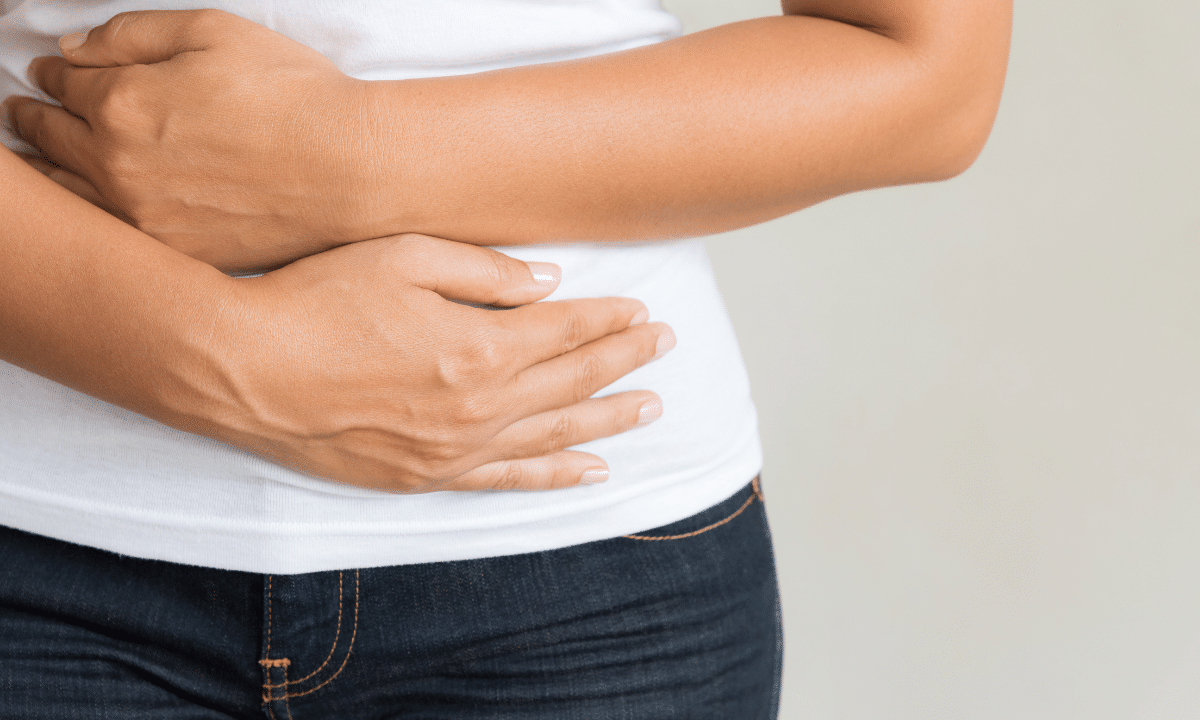Perimenopause Constipation Relief
What causes perimenopause constipation-and what to do about it
Table of Contents
ToggleIf you are transitioning to menopause and have been experiencing constipation, you’re not alone. Constipation is common during perimenopause, and your hormones might be to blame!
During the transition to menopause, your estrogen and progesterone levels decrease. This causes changes in bowel movements in some women.
Other hormonal imbalances during perimenopause can also contribute to this problem. For example, changes in the chemicals that maintain the body’s fluid balance can cause constipation by retaining fluids (water retention).
As a result, the food bolus will compact and dry out, and a dry bolus will take longer to travel through the intestine.
Now that you know the cause, let’s talk about what is important: what to do about it.
Perimenopause Constipation Relief
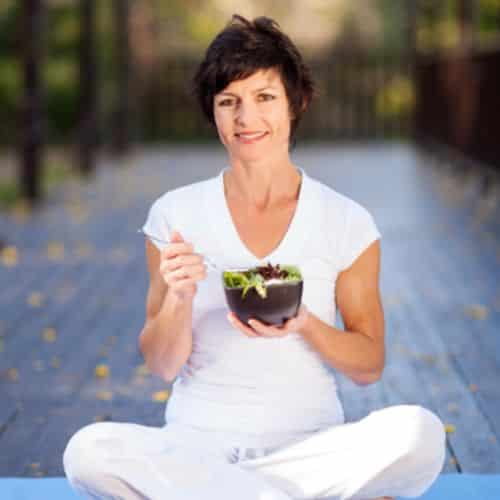
Let’s start with the simplest (and proven) ways to reduce constipation.
Increase Fiber
Fiber is essential if you struggle with constipation. According to the 2020-2025 Dietary Guidelines for Americans, the daily requirement of fiber for women younger than 50 is 25 grams. Women aged 51 or older need 21 grams.
Simple changes in your diet can achieve this fiber goal, including:
Eat Enough Fruits and Vegetables
Fruit and vegetables help your digestive system to form softer, bulkier stools. In addition, eating fruit and vegetables raw and with skin will provide you with more significant amounts of insoluble fiber. This type of fiber can help you pass stools faster.
Also, while all fruits and vegetables are beneficial in providing fiber and other useful nutrients, some of the best for constipation are:
| Fruits | Strawberries, blackberries, kiwi, prunes, papaya, peaches, apricots, plums, raisins, rhubarb, apples, pears, and pineapples |
| Vegetables | Artichokes, celery, eggplants, zucchini, corn, potatoes with their skin, broccoli, and green leafy vegetables such as spinach, lettuce, kale, and arugula. |
Whole Grains
It’s well known that the fiber in whole grains can alleviate constipation. Examples of high-fiber grains include:
- Whole-wheat bread
- Whole-wheat pasta
- Cereals high in fiber
- Oats
- Buckwheat
- Quinoa
- Brown rice
Plenty of high-fiber foods are proven to help you avoid or relieve constipation naturally. However, to prevent any gastrointestinal issues, such as gas or bloating, it’s recommended to increase your fiber consumption gradually.
Other Foods That Help With Constipation
Avocado, flax seeds, nuts, and olive oil are all good sources of fatty acids that assist by lubricating the stools. This helps by speeding up their passage through your GI tract.
Natural Laxative Foods
Prune Juice
This juice stands out as one of the most effective natural laxatives. Prunes are high in fiber, sorbitol, and fructose, which all contribute to softening the stool and stimulating bowel movements. Even hospitals have prune juice available to help with constipation.
Olive Oil
A tablespoon of olive oil can help to lubricate the intestines, making stools softer and easier to pass. Olive oil is also rich in healthy monounsaturated fats, antioxidants, vitamins, and minerals that are beneficial for digestion. To get the best results, take a tablespoon of olive oil on an empty stomach each morning or before bed.
Drink Enough Water
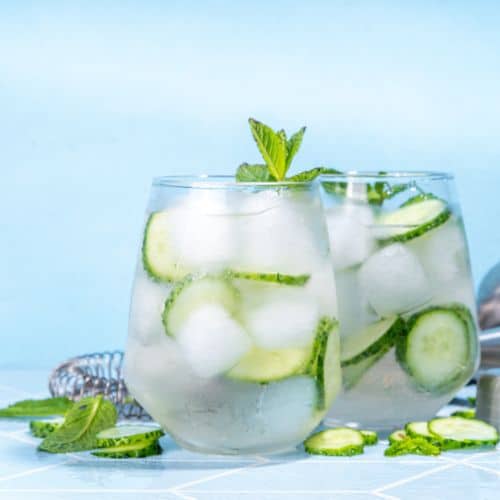
Dehydration can cause constipation. No doubt you’ve heard before that people need to drink sufficient water in order to maintain good general health.
But how much water do you need per day? The recommendation is that you drink between 2 and 3 liters of water daily.
Drinking enough water is especially important if you eat more fiber, engage in physical activity, or are in warm places.
If you struggle to drink enough water daily, add slices of fruits, herbs, or vegetables. Imagine drinking the type of water you will find at a nice spa at your home! Check this blog for a list of infused water ideas.
Juices, broths, tea, infusions, and refreshing drinks also count toward your daily water intake.
Move More
Moving more can help you pass stools faster. It also reduces the amount of water absorbed by the body in your intestines, reducing the chance of having hard stools. For relieving constipation, simple short walks a few times a day can help.
Aerobic exercises, like running, jogging, and dancing, can help further by stimulating the natural contractions your body needs to pass the stool.
Another type of movement that is very helpful for constipation is yoga. As your body twists in different positions, the muscles in your intestines work more efficiently to pass stools faster.
Finally, movement can help reduce stress and depression, helping your gastrointestinal (GI) system work better overall.
Use a Toilet Stool
The squatting position is thought to be better for digestion and elimination. To get the benefits of a squat without having to do it, try using a toilet stool. This simple device elevates your legs while on the toilet to put you in an optimal pooping position. Give it a try – you might be surprised at how much more comfortable and easy it is to go.
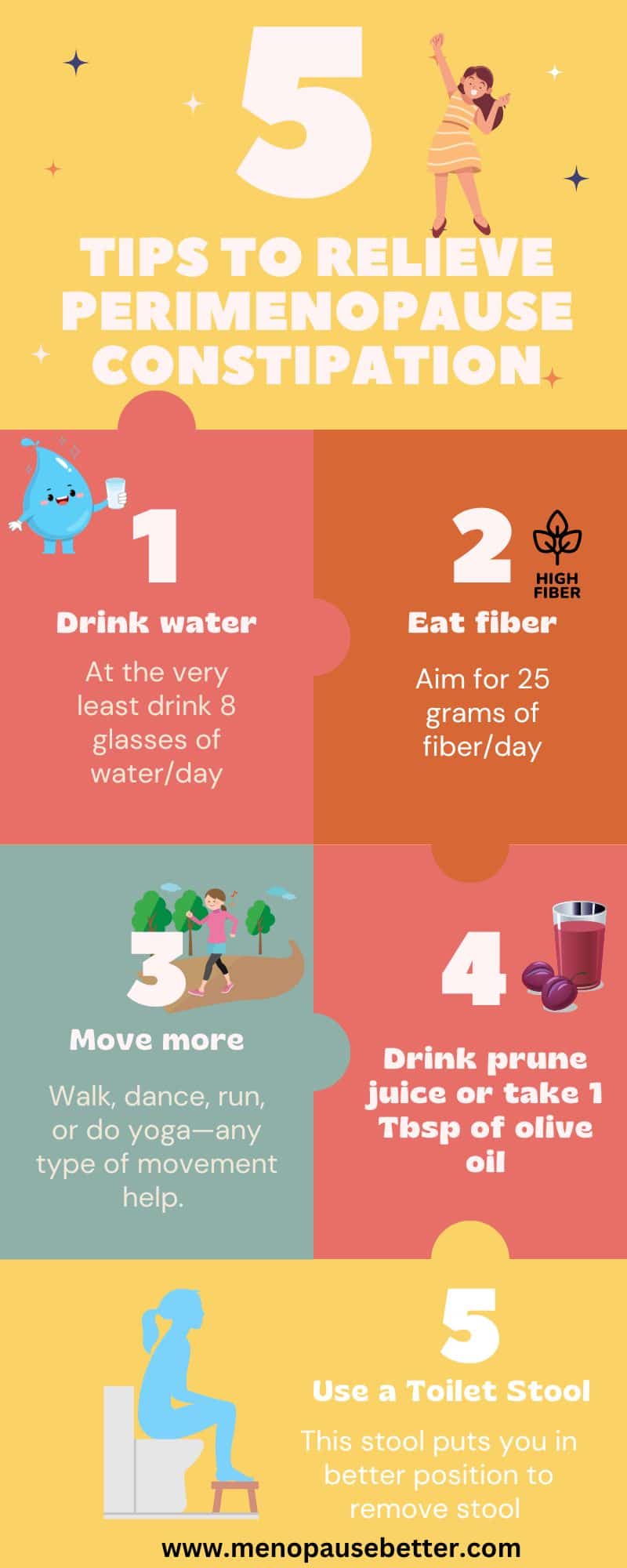
The Surprising Relation Between Depression and Constipation
An article published in the Journal of Gastroenterology explains how hormone imbalance can cause constipation. Specifically, a shortage of serotonin—the happiness hormone—in the gut can cause this uncomfortable condition.
The same shortage of serotonin in the brain can also lead to depression.
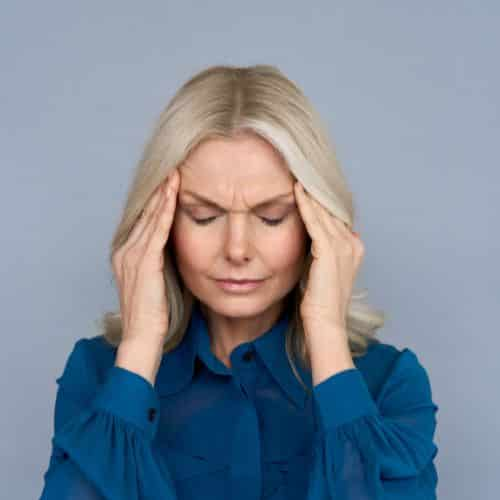
The good news is that the treatment that raises serotonin levels in the gut and brain also has the ability to alleviate constipation.
The behavioral aspect of depression also affects the body’s ability to pass stools. When we are emotionally unwell, our eating habits can change.
Eating more, eating less, skipping meals, or consuming unhealthy foods all make it challenging to maintain a regular intestinal transit, leading to constipation.
Over the Counter Medications
There are different types of over-the-counter medications available to help manage constipation. However, while they are a great way to fix constipation quickly in the short run, using them for prolonged periods can damage the intestinal walls.
Conclusion
In most cases, there’s really no need to suffer from this uncomfortable condition. Constipation can be treated with simple lifestyle changes. So, take care of yourself inside and out!
“Perimenopause Constipation Relief” was written by Su-Nui Escobar, DCN, RDN, FAND, collaborating with Registered Dietitians Vicky Rojas and Alessandra Sparks.

Dr. Su-Nui Escobar, a Registered Dietitian/Nutritionist in Miami, FL, is dedicated to empowering women in perimenopause and menopause to live healthier, more satisfying lives.
With a doctorate in clinical nutrition from the University of North Florida, she has expertise in menopause and weight loss, including the unique challenges faced by those on weight loss medications.
Su-Nui’s passion for her field is evident in her previous role as the Academy of Nutrition and Dietetics spokesperson.

